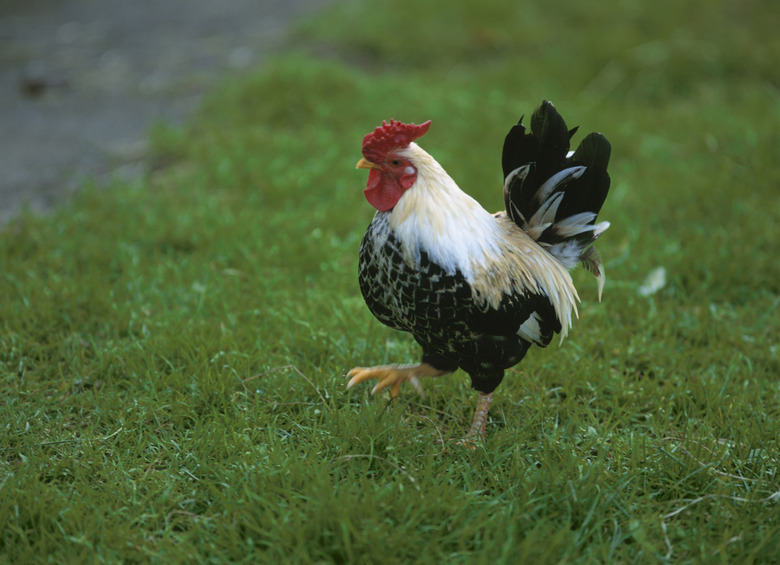Use Of Terramycin In Poultry
If your chickens are sneezy, snotty and watery-eyed, it's likely they have a respiratory infection. Respiratory disease is highly contagious; untreated it can cause a high rate of mortality in chickens and turkeys. Terramycin is an antibiotic that treats bacterial infections of both birds. Consult your avian vet before using the medication to determine whether your flock's illness is bacterial or viral in origin. Terramycin is ineffective against viral infections such as avian influenza and Newcastle disease. Misusing Terramycin on viral diseases delays proper treatment that can result in fatalities.
What Terramycin Is
What Terramycin Is
Terramycin is Pfizer's brand name for oxytetracycline. The medication is a wide range of bacteria responsible for a variety of respiratory illnesses, cholera and other infections. Dissolving the medicine in a flock's drinking water distributes it to the body through the bloodstream and the gastrointestinal tract. The medicine is also sold under the name Agrimycin, Duramycin and Oxytet. Terramycin ointment is also available for eye infections, abrasions or other topical symptoms.
Not for All Poultry
Not for All Poultry
Terramycin is safe for turkeys and chickens. The medication is not labeled for ducks or geese; it and many antibiotics are toxic to waterfowl. Make sure your ducks and geese can't access the medicated water, as they tend to consume greater quantities of water than chickens and can ingest fatal dosages fairly quickly.
A Similar Medication
A Similar Medication
When your poultry have diarrhea or other signs of intestinal illness, your vet may recommend Neo-Terramycin instead of plain Terramycin. The antibiotic combines with Neomycin for a double-whammy against gastrointestinal conditions. Terramycin is effective against some stomach bugs like Pasturella multocida and Mycoplasma synoviae, while Neomycin is a best bet for Escherichia coli and Salmonella.
Administering Terramycin to Fowl
Administering Terramycin to Fowl
If your vet recommends using the medication, you'll be able to buy Terramycin without a prescription from feed stores, from veterinary supply stores and online. The medicine comes in packets of dissolvable powder. Stick to the vet's prescription. One 4.78-ounce packet makes approximately 128 gallons of water. Change the water daily, continuing the medicine for seven to 14 days according to your vet's instructions. Your vet may have you isolate the sick birds, giving Terramycin only to them, or may instruct you to medicate the entire flock as a preventive.
What to Look Out For
What to Look Out For
Terramycin is not for use by laying hens, as the medication is passed through their eggs. While Terramycin is used to treat disease in human being, some people have an allergic reaction to Terramycin in eggs. Trace amounts of the drug are present in the yolks laid months after treatment has stopped. The medicine is safe to give to layers before they begin egg production and to meat birds four days prior to slaughter.
